Maria Lassnig
Maria Lassnig
Maria Lassnig (8 September 1919 – 6 May 2014) was an Austrian artist known for her painted self-portraits and her theory of "body awareness".[1] She was the first female artist to win the Grand Austrian State Prize in 1988 and was awarded the Austrian Decoration for Science and Art in 2005.[2][3] Lassnig lived and taught in Vienna from 1980 until her death.[4][5]
Maria Lassnig was born in Kappel am Krappfeld, Austria on 8 September 1919.[6][7] Her mother gave birth to her out of wedlock and later married a much older man, but their relationship was troubled and Lassnig was raised mostly by her grandmother.[8] She attended the Academy of Fine Arts in Vienna during World War II.[9]

In the 1950s, Lassnig was part of the Hundsgruppe ("Dog Pack") group, which also included Arnulf Rainer, Ernst Fuchs, Anton Lehmden, Arik Brauer and Wolfgang Hollegha.[10] The works of the group were influenced by abstract expressionism and action painting.[11] In 1951 Lassnig traveled to Paris with Arnulf Rainer where they organized the exhibition Junge unifigurative Malerei at the Kärnten Art Association.[12] In Paris she also met the surrealist artist André Breton and the poets Paul Celan and Benjamin Péret.[8][13]
Though Lassnig began her career painting abstract works, she always created self-portraits. One of her earliest was Expressive Self-Portrait (1945), which she painted only weeks after fleeing Vienna.[14] In 1948 Lassnig coined the term "body consciousness" to describe her practice.[7] In this style, Lassnig only depicted the parts of her body that she actually felt as she worked.[13] As such, many of her self-portraits depict figures that are missing body parts or use unnatural colours. By the 1960s Lassnig turned away from abstract painting altogether and began to focus more wholly on the human body and psyche.[15] Since that time she created hundreds of self-portraits.[14]
From 1968 to 1980, Lassnig lived in New York City.[16] From 1970 to 1972 she studied animated film at the School of Visual Arts in New York City.[4] During this time she made six short films, including Selfportrait (1971) and Couples(1972).[17] Her most famous film, however, Kantate (also known as The Ballad of Maria Lassnig), was produced in 1992 when she was seventy-three years old.[18] Kantate (1992) depicts a filmic self-portrait of the artist set to songs and music.[18]
In 1980, she returned to become a professor at the Vienna University of Applied Arts, becoming the first female professor of painting in a German-speaking country.[4] She was a chair at the University until 1997.[17] In 1997 she also published a book of her drawings entitled Die Feder ist die Schwester des Pinsels (or The Pen is the Sister of the Paintbrush).[4]

Well into her sixties, Lassnig began to receive widespread recognition, especially in Europe, only late in her career.[8] She represented Austria at the Venice Biennale with Valie Export in 1980.[2] In 1996 a retrospective of her work was held at the Centre Georges Pompidou.[1] She participated in documenta in both 1982 and 1997.[4] For the 2005/2006 season at the Vienna State Opera she designed the large scale (176 m2) Breakfast with Ear for the ongoing series "Safety curtain", conceived by museum in progress. In 2008 an exhibition of her recent paintings was shown at the Serpentine Gallery[19][20] which also travelled to the Contemporary Arts Center in the Lois & Richard Rosenthal Center for Contemporary Art in Cincinnati, (2009). The exhibition was curated by Julia Peyton-Jones and Hans Ulrich Obrist in association with Rebecca Morrill and featured thirty canvases and seven films.
Lassnig's later solo exhibitions included It's art that keeps one ever young, Städtische Galerie im Lenbachhaus, Munich, Germany, (2010), 'Maria Lassnig. Films’, Friedrich Petzel Gallery, New York NY, (2011), and The Location of Pictures, Deichtorhallen; Hamburg (2013).[21]







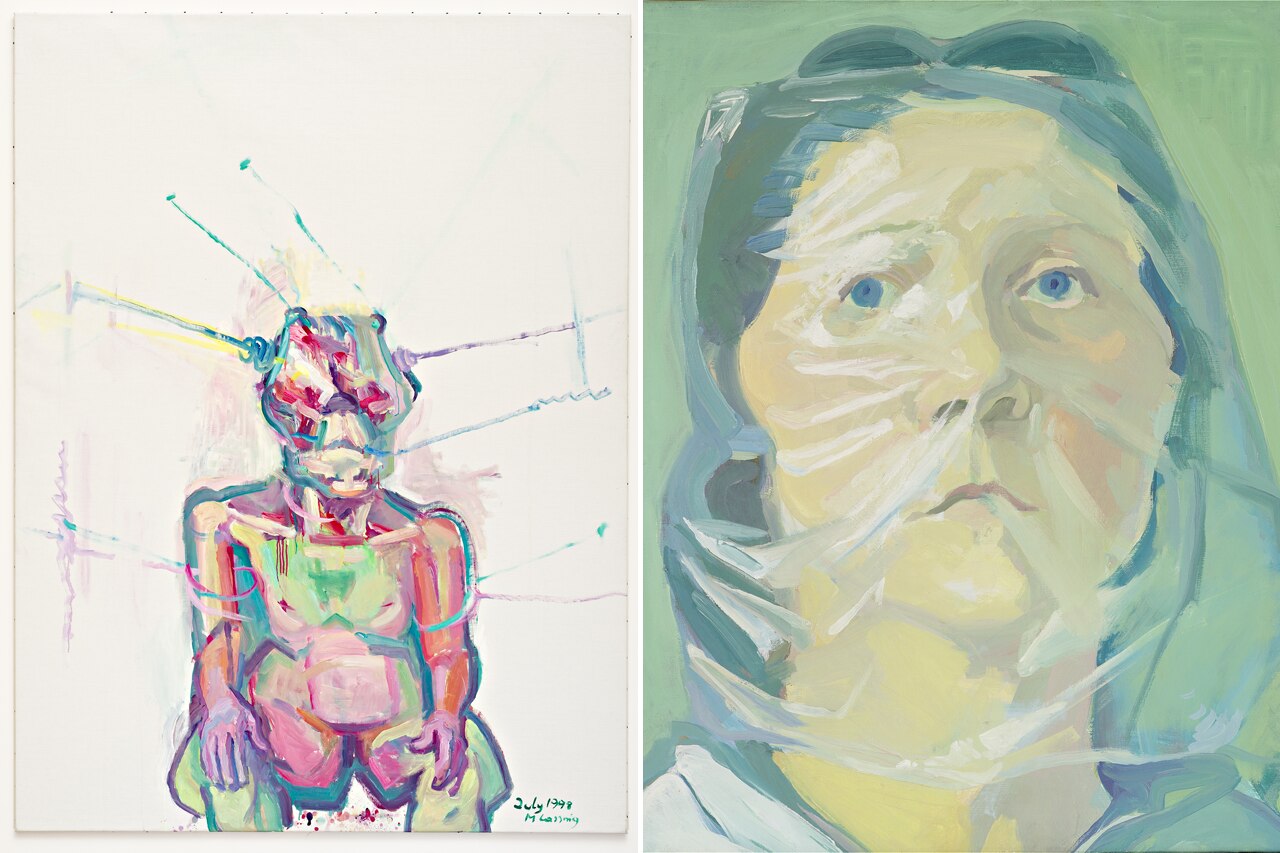

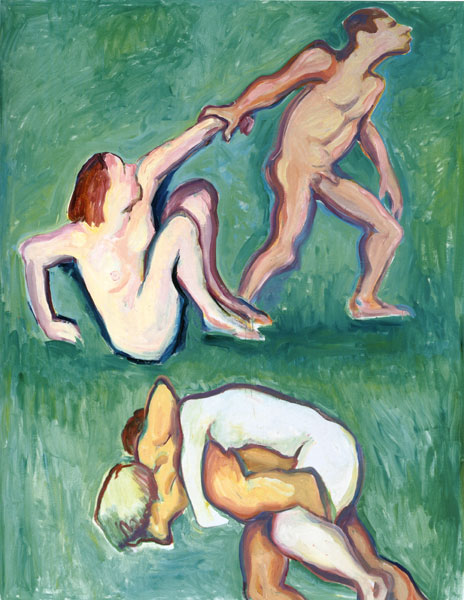
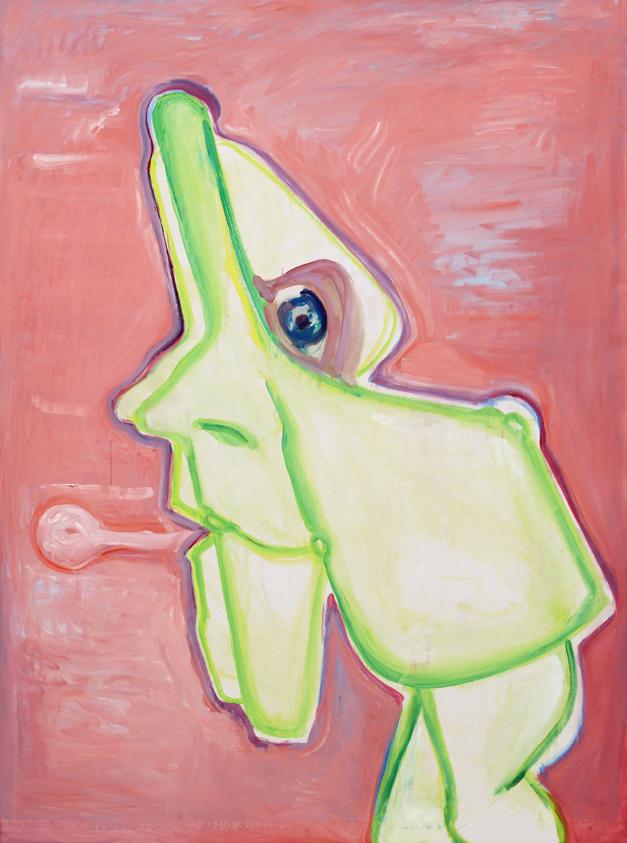
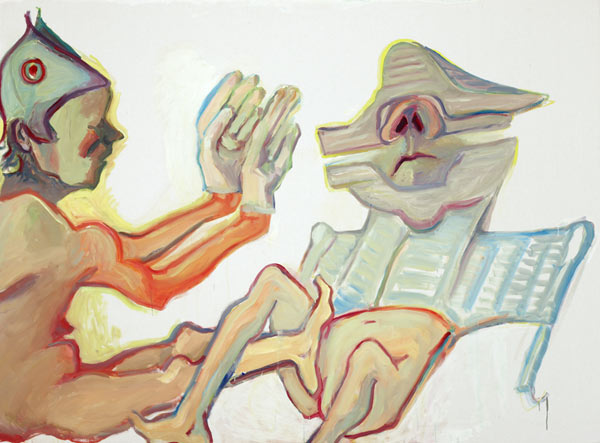
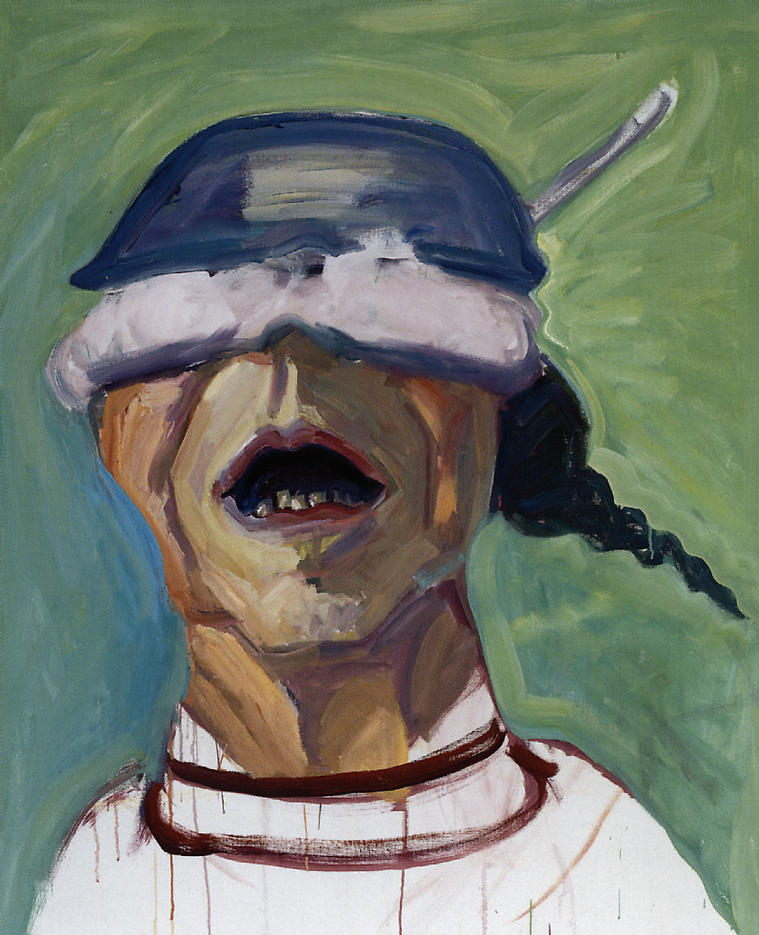
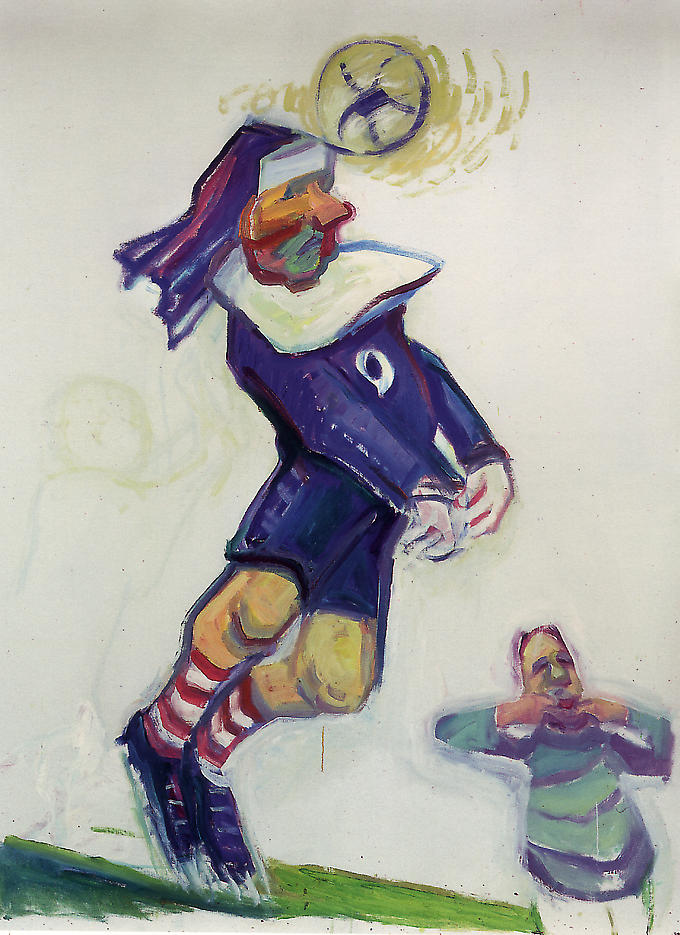


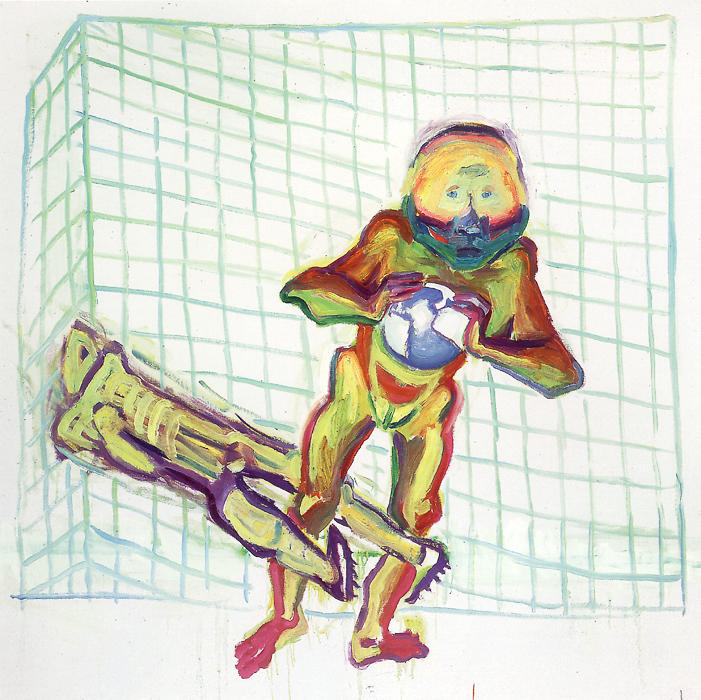
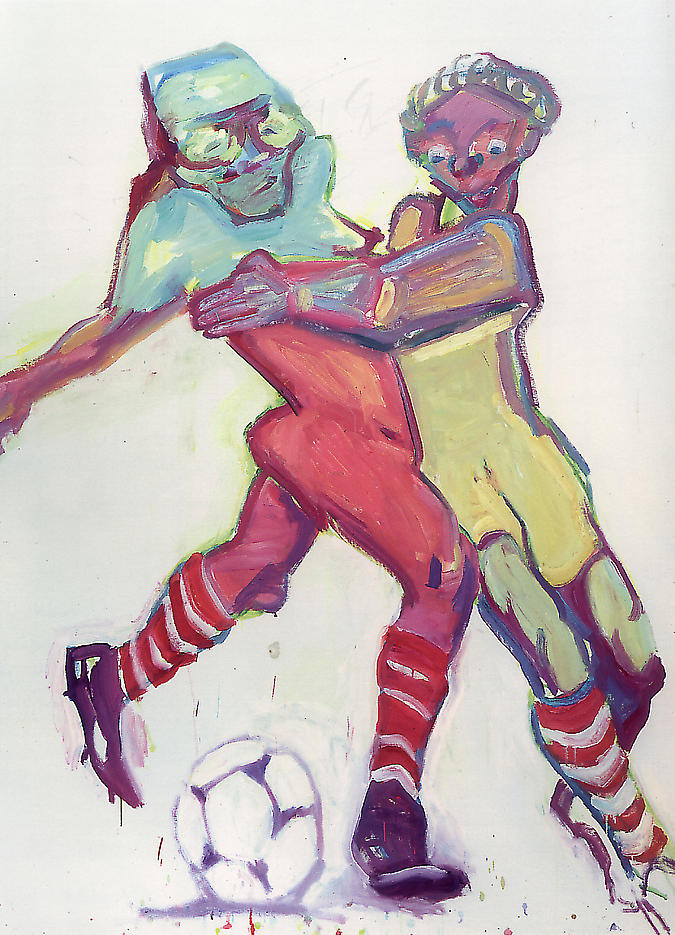
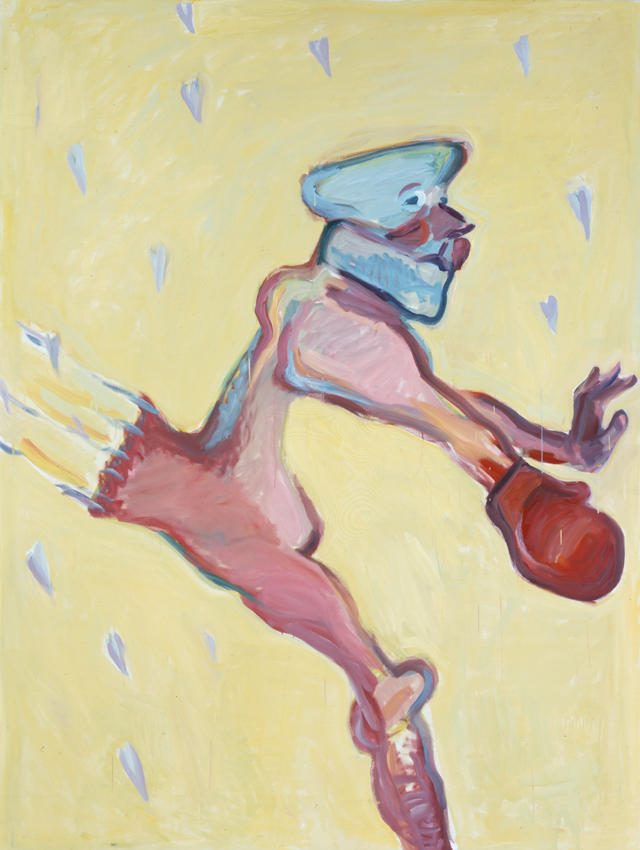
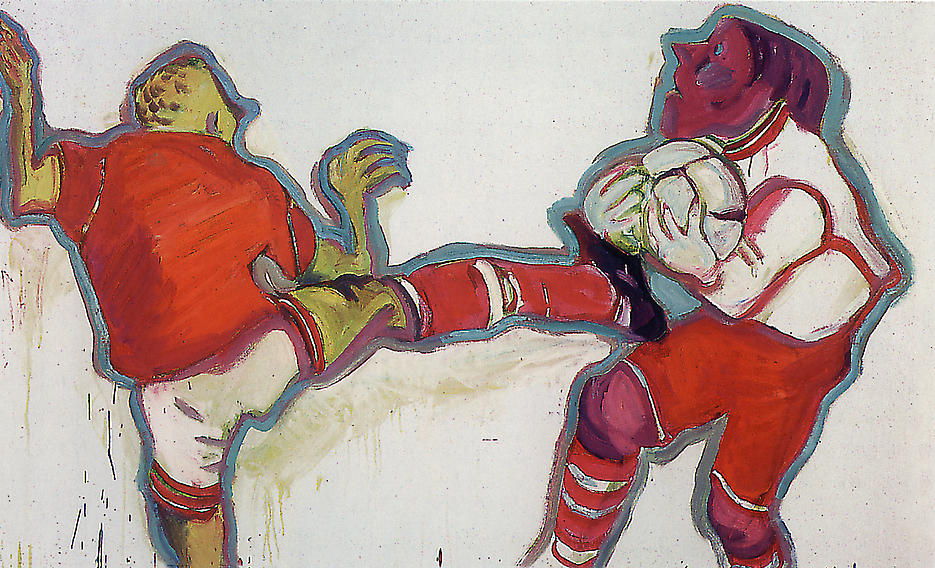
 ttp://prod-images.exhibit-e.com/www_petzel_com/e0782eae.jpg
ttp://prod-images.exhibit-e.com/www_petzel_com/e0782eae.jpg
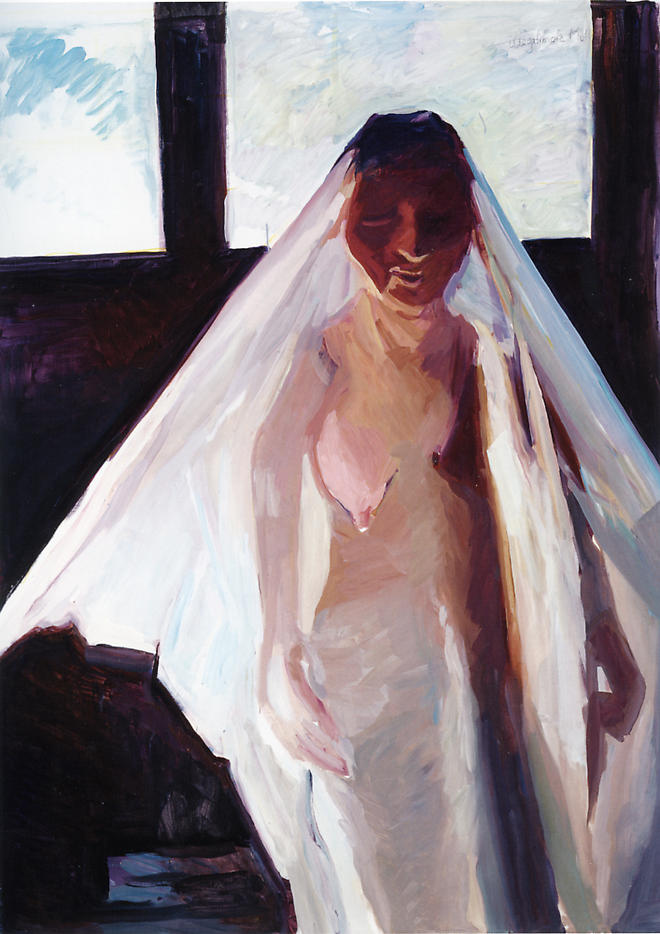
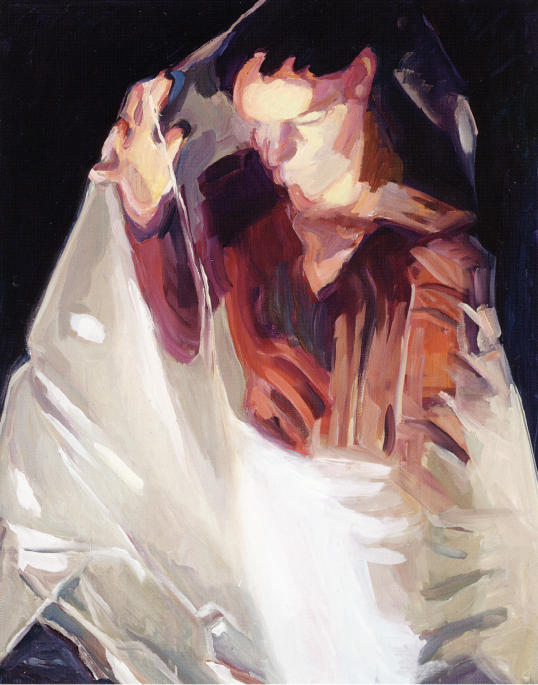
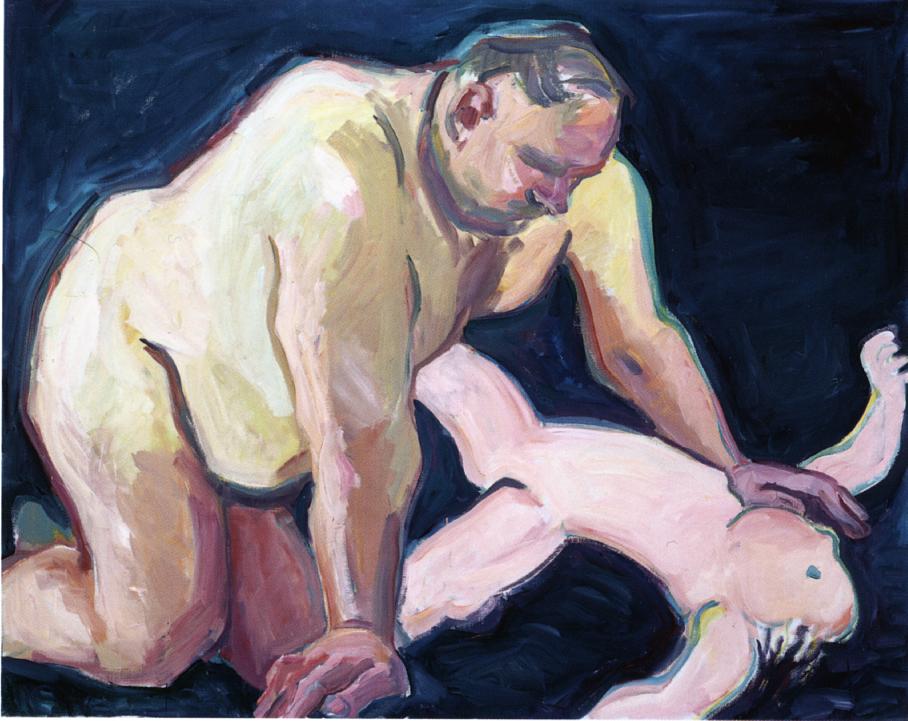







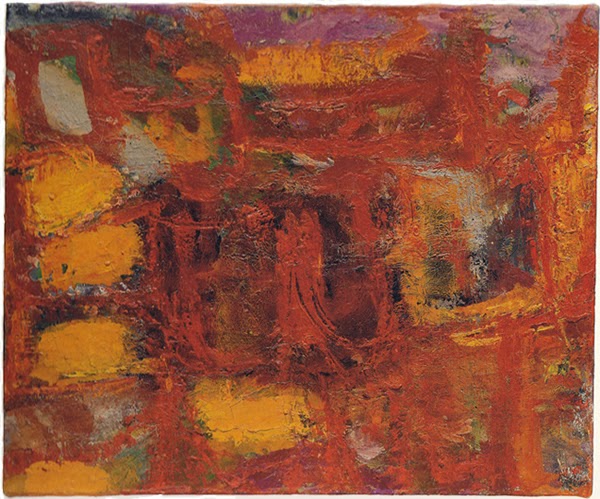
Commenti